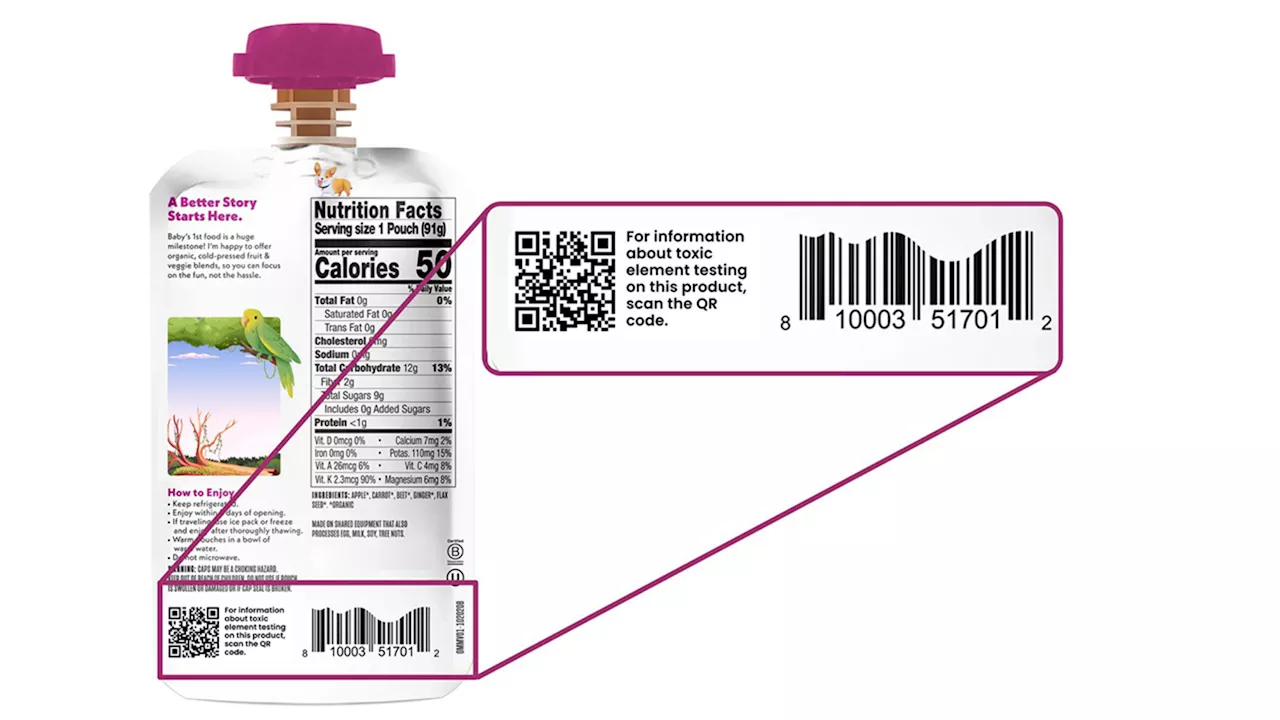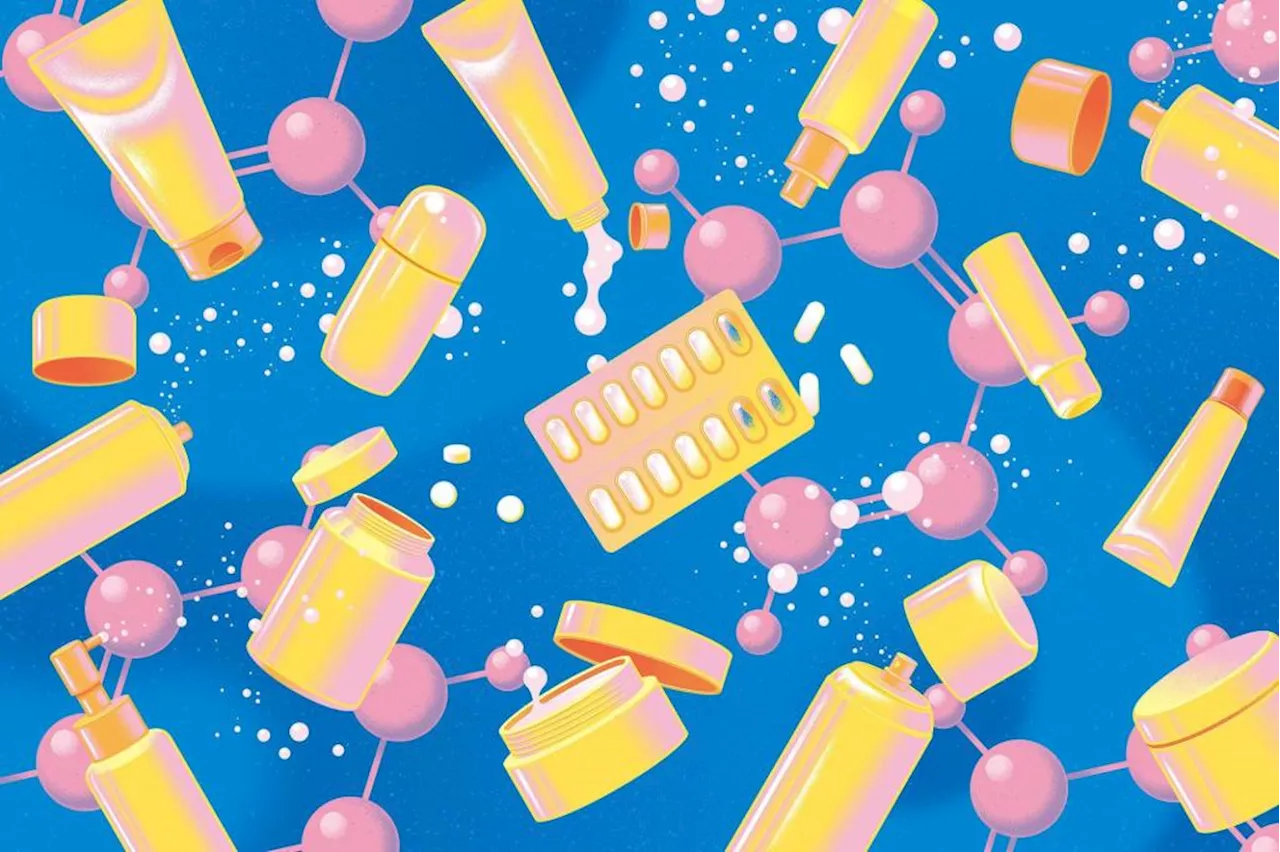A new report reveals that many over-the-counter protein powders contain unsafe levels of lead and heavy metals like cadmium, exceeding government food safety regulations. Organic protein powders showed higher levels of contamination compared to non-organic options, with chocolate-flavored powders containing alarmingly high amounts of cadmium. The report also highlights the lack of comprehensive federal regulations regarding heavy metals in dietary supplements.
Jan. 10, 2025 -- Over-the-counter protein powders have levels of lead and heavy metals like cadmium that exceed government food safety regulations, according toOn average, organic protein powders that were tested showed three times more lead and twice the amount of cadmium than non-organic products, the report said. Chocolate-flavored powders that were tested showed four times more lead than vanilla and up to 110 times more cadmium, the report said.no level of lead is safe for human consumption.
“This study serves as a wake-up call for consumers, manufacturers, retailers, and regulators alike,” the CLP report said. “With the lack of comprehensive federal regulations specifically addressing heavy metals in dietary supplements, it is critical that the industry independently takes proactive measures.”
On a positive note, the CLP report found lower levels of bisphenols compared to a 2018 study. Bisphenols are hormone disruptors linked to fetal abnormalities and other problems in young children. The study found bisphenols in three of 160 protein powder products, compared to 55% in a previous study. The report said researchers tested 160 products from 70 top-selling brands, which represents 83% of the market.
An industry association representing supplement manufacturers said the Clean Label Project report didn’t provide sufficient transparency about the criteria used for contamination thresholds, according to“Without such clarity, consumers and industry stakeholders cannot fully evaluate the validity of the claims,” Andrea Wong, senior vice president of scientific and regulatory affairs for the Council for Responsible Nutrition, told CNN.
Heavy Metals Protein Powders Food Safety Cadmium Lead
United States Latest News, United States Headlines
Similar News:You can also read news stories similar to this one that we have collected from other news sources.
 California Law Requires Baby Food Brands to Publicly Share Heavy Metals Test ResultsA new California law mandates baby food manufacturers to test their products for heavy metals and make the results public via QR codes on labels.
California Law Requires Baby Food Brands to Publicly Share Heavy Metals Test ResultsA new California law mandates baby food manufacturers to test their products for heavy metals and make the results public via QR codes on labels.
Read more »
 Popular Science's Most Popular Stories of 2024Popular Science highlights its top 22 stories of 2024, ranging from DIY home tips to scientific discoveries. The article features excerpts from two popular stories: 'Why can’t we just launch all of Earth’s garbage into the sun?' and 'Nature wasn’t healing: What really happened with wildlife during pandemic lockdowns.'
Popular Science's Most Popular Stories of 2024Popular Science highlights its top 22 stories of 2024, ranging from DIY home tips to scientific discoveries. The article features excerpts from two popular stories: 'Why can’t we just launch all of Earth’s garbage into the sun?' and 'Nature wasn’t healing: What really happened with wildlife during pandemic lockdowns.'
Read more »
 Benzene Found in Popular Products, Raising Health ConcernsRecent findings have detected benzene, a known carcinogen, in various personal care products like hand sanitizers, deodorants, dry shampoos, and sunscreens. While low-level exposure risks are unclear, the presence of benzene has sparked public concern and legal action. Experts emphasize the need for further investigation despite some questioning the methodology of initial findings.
Benzene Found in Popular Products, Raising Health ConcernsRecent findings have detected benzene, a known carcinogen, in various personal care products like hand sanitizers, deodorants, dry shampoos, and sunscreens. While low-level exposure risks are unclear, the presence of benzene has sparked public concern and legal action. Experts emphasize the need for further investigation despite some questioning the methodology of initial findings.
Read more »
 12 people found dead inside restaurant at popular ski resort'No signs of body injuries or signs of violence were detected.”
12 people found dead inside restaurant at popular ski resort'No signs of body injuries or signs of violence were detected.”
Read more »
 Toxic 'Forever Chemicals' Found in Popular Smartwatch BandsA new study has revealed that many popular smartwatch bands contain high levels of PFAS, toxic 'forever chemicals' linked to serious health problems. These chemicals, used for their water-resistant and non-stick properties, don't break down in the environment and can accumulate in our bodies. The study, focusing on fluoroelastomer bands, found high levels of PFHxA, a PFAS chemical absorbed through the skin, especially during sweating.
Toxic 'Forever Chemicals' Found in Popular Smartwatch BandsA new study has revealed that many popular smartwatch bands contain high levels of PFAS, toxic 'forever chemicals' linked to serious health problems. These chemicals, used for their water-resistant and non-stick properties, don't break down in the environment and can accumulate in our bodies. The study, focusing on fluoroelastomer bands, found high levels of PFHxA, a PFAS chemical absorbed through the skin, especially during sweating.
Read more »
 Plastic Contamination Found in Popular Foods, Study RevealsA new study by PlasticList highlights the alarming presence of plastic contamination in a wide range of food products, from fast food chains like Burger King and McDonald's to everyday staples like rice. The research found high levels of phthalates, a chemical used to make plastics softer, in various items, including chicken nuggets, hamburgers, and salads. Bottled water also emerged as a major source of contamination.
Plastic Contamination Found in Popular Foods, Study RevealsA new study by PlasticList highlights the alarming presence of plastic contamination in a wide range of food products, from fast food chains like Burger King and McDonald's to everyday staples like rice. The research found high levels of phthalates, a chemical used to make plastics softer, in various items, including chicken nuggets, hamburgers, and salads. Bottled water also emerged as a major source of contamination.
Read more »
